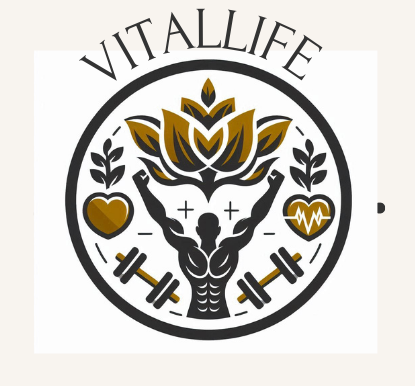Recent scientific studies have made one thing clear: our social connections are more than just feel-good friends. They play a significant role in how long and how well we live. Researchers have found that strong social bonds can add years to our lives. How? The answer lies in both our minds and bodies.
Physiologically, strong social ties can reduce stress levels. Lower stress means less strain on the heart and lower levels of harmful hormones like cortisol. We’re talking about a ripple effect that improves everything from blood pressure to immune system strength. It’s not just about feeling good – it’s about tangible health benefits.
On the flip side, social isolation can seriously hurt our physical health. Studies show that loneliness and lack of social connections are linked to higher risks of chronic diseases such as heart disease, diabetes, and even dementia. When people feel lonely, they often experience higher levels of inflammation, which is a common thread in many health issues.
Leading this fascinating field of study are researchers like Julianne Holt-Lunstad from Brigham Young University. Holt-Lunstad’s work is groundbreaking, showing us that social connections are as important to our health as diet and exercise. Institutions like Harvard and the University of Oxford are also making strides, uncovering just how crucial our social lives are to our overall well-being.
Here link from this groundbreaking study;
Understanding the science behind this connection can prompt us to take our social lives seriously. It’s not just about not feeling lonely; it’s about actively building and maintaining relationships that have tremendous health benefits.
Psychological Benefits of Strong Social Networks
Our mental health thrives on the strength of our social connections. Strong social support means we are less likely to experience anxiety and depression. Why? Because having someone to talk to, share experiences with, and rely on during tough times can significantly alleviate stress and emotional burdens.
Take friendships, for example. They provide a sense of belonging and a purpose, which can combat feelings of loneliness. Family bonds also play a critical role here, offering emotional stability and deep-rooted support. Engaging with a community, whether it’s a neighborhood group, a sports team, or a hobby club, can provide structure and a sense of security.
Personal stories show just how impactful these connections can be. Think of a time when a friend’s support helped you through a difficult period. Or recall how family gatherings lifted your spirits. These experiences aren’t just happy memories; they have lasting positive effects on our mental wellbeing.
Building and maintaining social networks takes effort, but it’s worth it. Consider joining local clubs, volunteering, or reconnecting with old friends. It’s about making a bit of effort each day to reach out and stay connected. Techniques like active listening and showing genuine interest can help deepen these relationships.
There’s also the important aspect of balancing online and offline interactions. Technology can bridge gaps, but face-to-face connections are irreplaceable for emotional depth. Find a good mix between the two to enrich your social life fully.
Social Connections Across Different Life Stages
Social connections matter from the cradle to the grave. For children and adolescents, having strong social bonds is foundational. Positive relationships with family and peers contribute to healthy development, influencing everything from academic performance to emotional regulation. Kids who feel connected are more likely to be resilient and better adjusted.
In adulthood, social ties are essential for navigating life’s challenges. As people juggle careers, parenthood, and other responsibilities, having a solid social network can provide emotional and practical support. Professional networks, in particular, can open doors and offer mentorship opportunities, while friendships provide a needed escape from daily stresses.
The later stages of life present unique challenges and opportunities for maintaining social connections. Retirement, mobility issues, and the passing of friends or family can narrow social circles. However, this stage also brings opportunities to form new connections through community activities, clubs, and volunteer work. Engaging in regular social activities has been shown to improve cognitive function and emotional health in older adults.
Successful stories abound of individuals aging gracefully through active social engagement. Whether it’s joining a book club, participating in social dances, or just having regular coffee meet-ups, staying socially active significantly impacts one’s quality of life. It’s not merely a matter of being active but finding joy and purpose through those connections.
Practical Strategies to Foster Meaningful Social Connections
Building new friendships or strengthening existing ones doesn’t have to be complicated. Here are actionable tips that can make a real difference.
Start by showing genuine interest in others. Ask questions, listen actively, and remember details about their lives. This makes people feel valued and respected.
Consistency is key. Make plans and stick to them. Regular meet-ups, even if they’re brief, can strengthen relationships. It’s the little things that build trust and camaraderie over time.
Don’t underestimate the power of shared activities. Join clubs, take classes, or volunteer. Shared interests are a fantastic way to meet like-minded people and form meaningful bonds.
While technology can sometimes feel impersonal, it’s a useful tool for maintaining connections, especially with distant friends and family. Regular video calls, group chats, and social media interactions keep relationships alive.
Community-based programs can also boost social engagement. Many communities offer events, hobby groups, and support networks. Check out local bulletin boards or community centers to find opportunities to get involved.
Overcoming common barriers to social interaction might require a little courage. If shyness or a busy schedule holds you back, start small. Initiate short conversations, attend local events, or schedule regular breaks to catch up with friends. Each small step can make a significant difference.
Making an effort to foster strong social connections pays off in many ways. It’s about building a support system that improves mental and physical health, providing joy, and making life more fulfilling. So, take the first step today and reach out.
